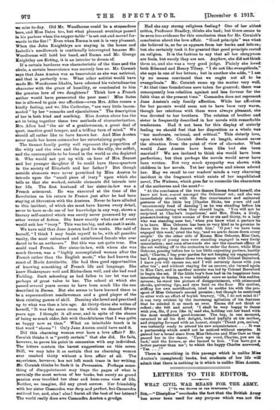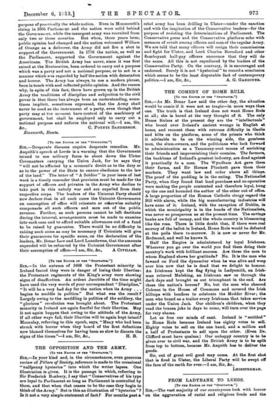LETTERS TO THE EDITOR.
WHAT CIVIL WAR MEANS FOR THE, ARMY.
["To TIM EDITOR OF Tail erseraroaal Snt,—"Diseiplins" overlooks the fact that the British Army has never been usee for any purpose which was nob the
purpose of practically the whole nation. Even in Monmouth's rising in 1685 Parliament and the nation were solid behind the Government, while the insurgent army was recruited from only two or three counties. But when, three years later, public opinion had changed and the nation welcomed William of Orange as a deliverer, the Army did not fire a shot in support of the Government. In 1776 the nation, as well as the Parliament, supported the Government against the Americans. The British Army has never, since it was first raised at the Restoration, been ordered to carry out a purpose which was a party and not a national purpose, or to act in a manner which was regarded by half the nation with detestation and horror. The Army has always, to use a modern phrase, been in touch with and reflected public opinion. And the reason why, in spite of this fact, there have grown up in the British Army the traditions of discipline and subjection to the civil power is that there has always been an understanding, some- times implicit, sometimes expressed, that the Army shall never be used as the instrument of a party, even though that party may at the moment have control of the machinery of government, but shall be employed only to carry out a national purpose and enforce the national will.—I am, Sir,



































































 Previous page
Previous page